- Преподавателю
- Иностранные языки
- Учебное пособие по английскому языку CUSTOMER CARE Правила общения с клиентом (гостиничный сервис)
Учебное пособие по английскому языку CUSTOMER CARE Правила общения с клиентом (гостиничный сервис)
| Раздел | Иностранные языки |
| Класс | - |
| Тип | Другие методич. материалы |
| Автор | Боголей Т.А. |
| Дата | 29.10.2014 |
| Формат | docx |
| Изображения | Есть |
Боголей Т.А.
CUSTOMER CARE
Правила общения с клиентом
Учебное пособие
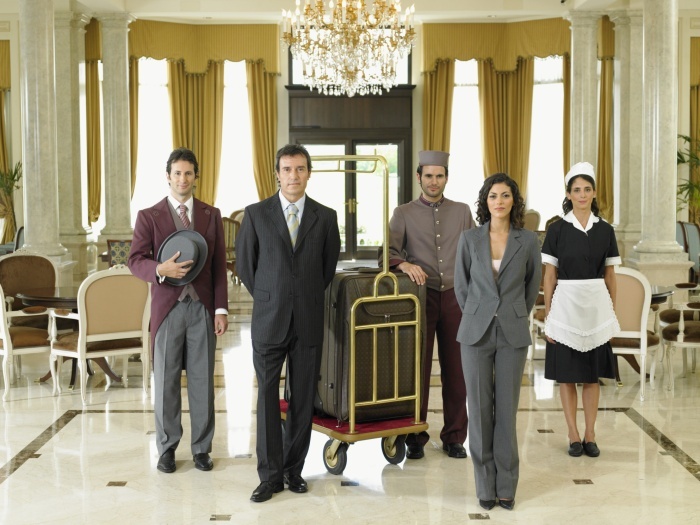
Краснодар, 2014
В учебном пособии представлены основные общепринятые правила общения с клиентом, знание которых является обязательным для будущих специалистов индустрии гостеприимства.
Материал пособия предназначен для использования на уроках английского языка в обучении студентов 2-3 курсов специальности «Гостиничный сервис».
Данная работа может быть полезным дополнением к факультативным занятиям по английскому языку профессиональной направленности, а также может использоваться как материал для самостоятельной работы студентов.
Введение
Основной принцип поведения персонала в гостинице любого уровня звёздности - это гостеприимное отношение к гостю. Понятию «гостеприимство» трудно дать чёткое определение, его нельзя измерить. Тем не менее, именно гостеприимство является самым главным фактором, который влечёт клиентов в гостиницу.
Самые грандиозные маркетинговые методы, самый эксклюзивный дизайн и самые необычные услуги не спасут от краха отель, в котором персонал не проявляет тёплого отношения к собственным посетителям и не особо печётся о высоком уровне обслуживания. Человеческий фактор является ключевым для успеха любого гостиничного предприятия.
Распространённой ошибкой многих новоиспечённых работников гостиниц является их стремление угодить начальству. Они не осознают, что главной ценностью в гостинице всегда есть клиент - именно на удовлетворение его интересов должна быть направлена работа персонала.
Конечная цель в работе персонала - чтобы клиент остался довольным. Ведь у клиента есть друзья, знакомые, коллеги, которым он в случае необходимости сможет посоветовать именно вашу гостиницу. А вот если обслуживание в вашем заведении разочаровало посетителя, то будьте уверены: негативная информация распространится в его окружении гораздо быстрее.
В данном пособии освещены основные правила общения с клиентами, знание которых является обязательным для будущих работников сферы гостиничного сервиса. Также, в сборнике предлагаются советы, как выйти из сложных ситуаций общения. Каждая тема завершается заданиями для дискуссии и воспроизведения рассматриваемых ситуаций на английском языке. В завершении курса студентам предлагается пройти тест по материалу пособия для самопроверки знаний по данной теме.
Хотелось бы посоветовать будущим работникам сферы гостеприимства развивать в себе психологические навыки и, конечно, изучать иностранные языки.

The customer is always right
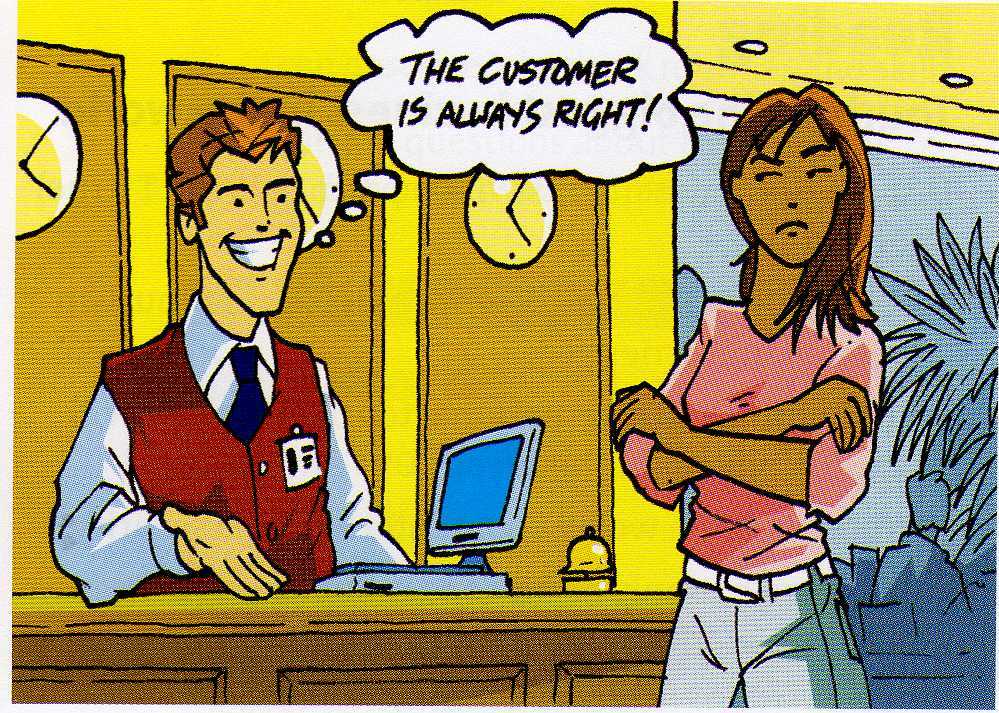
-
Do you agree that "the customer is always right"?
-
Look at this definition. Think of your own good experiences as a customer. Tell your partner about them.
Tourism and hotel business is about customer care:
-
It's about people, not just places.
-
It's about always smiling.
-
It's about always listening.
-
It's about delighting the customer, not just serving a customer.
-
It's about loving your job, not doing it.
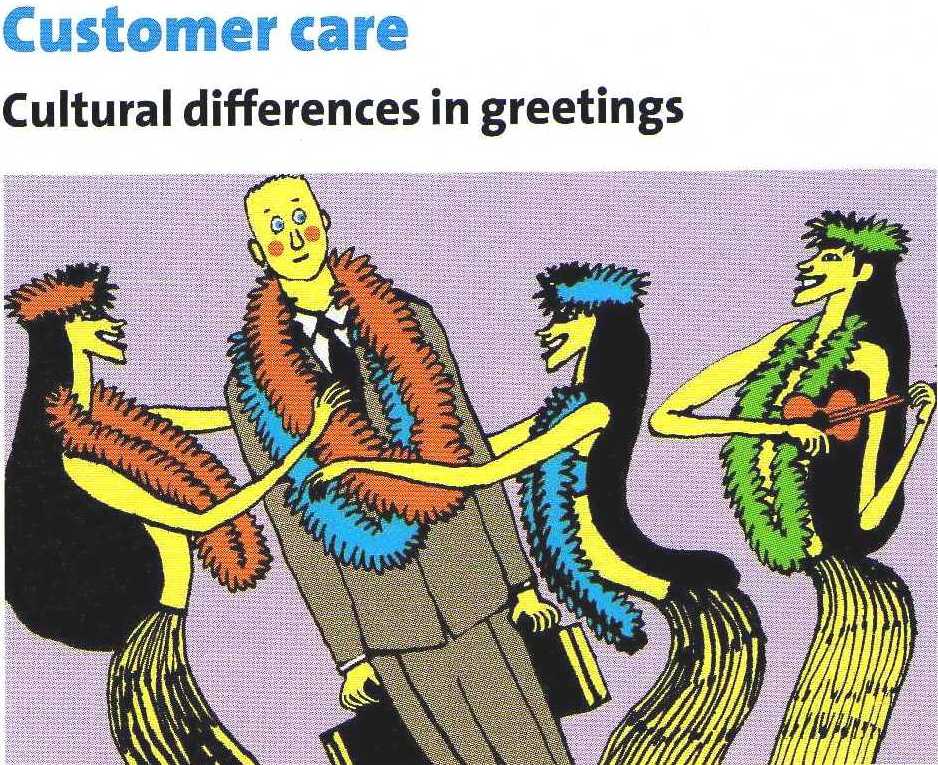
Even before you say a word, there are many ways of greeting people. How you do it will depend on many things, for example your nationality and culture, how well you know the person you are greeting, your relative ages, and your gender.
You need to think about who you are meeting and greeting before you do it.
-
Do you know what each of these ways of greeting is?
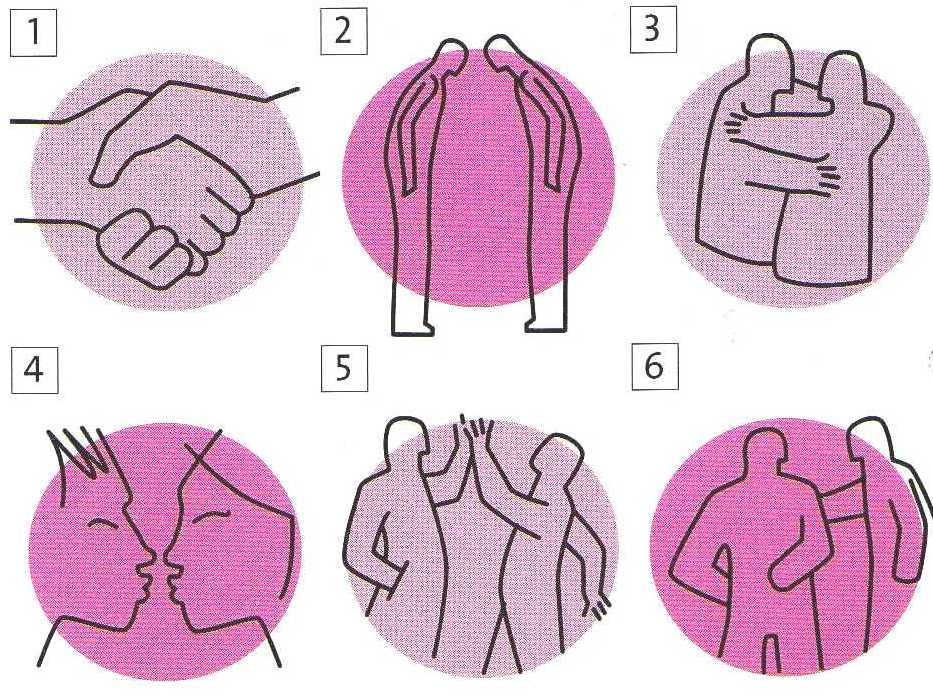
-
Would you use these greetings? In which situation?
-
Which of the greeting in (1) do you associate with the following regions?
-
Northern Europe
-
Southern Europe
-
Eastern Europe
-
North America
-
Central and South America
-
The Middle East
-
Africa
-
Asia
-
Australasia
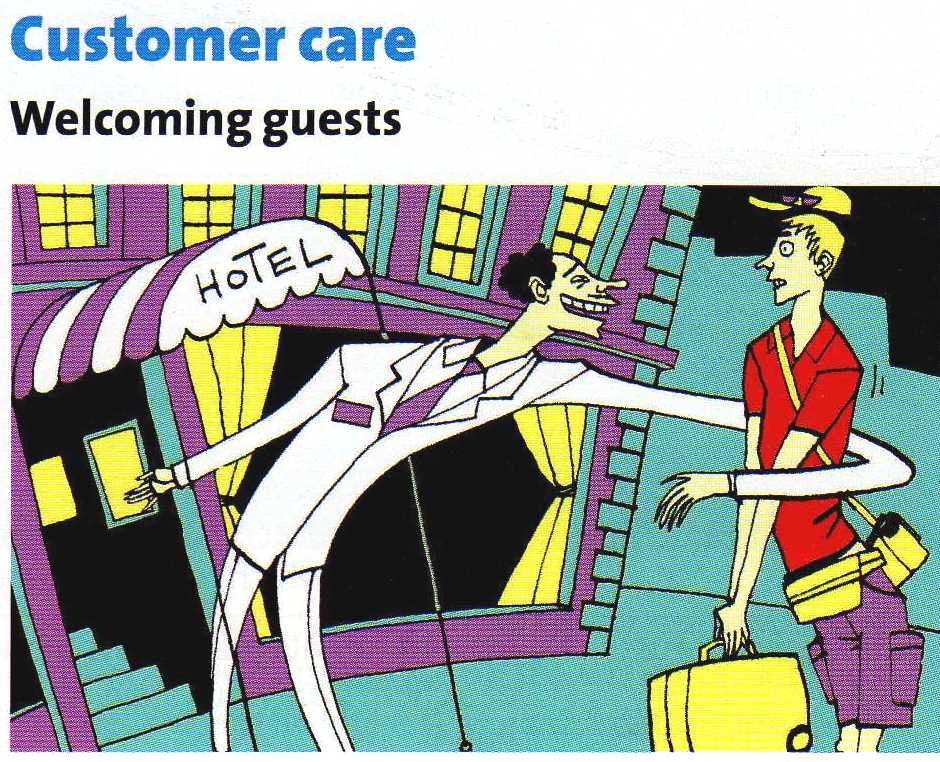
Eight simple rules for welcoming guests
-
Smile when you greet the customer
-
Listen to what the customer is saying
-
Make eye contact, but don't stare
-
Make sure you look interested
-
Address the customer by name
-
Don't interrupt the customer
-
Keep a reasonable distance from a customer, not too close and not too far
-
Always thank the customer when appropriate
In groups of three, practice welcoming each other to your class "hotel". Take turns to be
-
The receptionist - ask some simple questions, for example about the journey
-
The guest - get the information you want
-
The monitor - watch the receptionist and see how many of the "eight simple rules" he or she follows.

Different destination - different customs
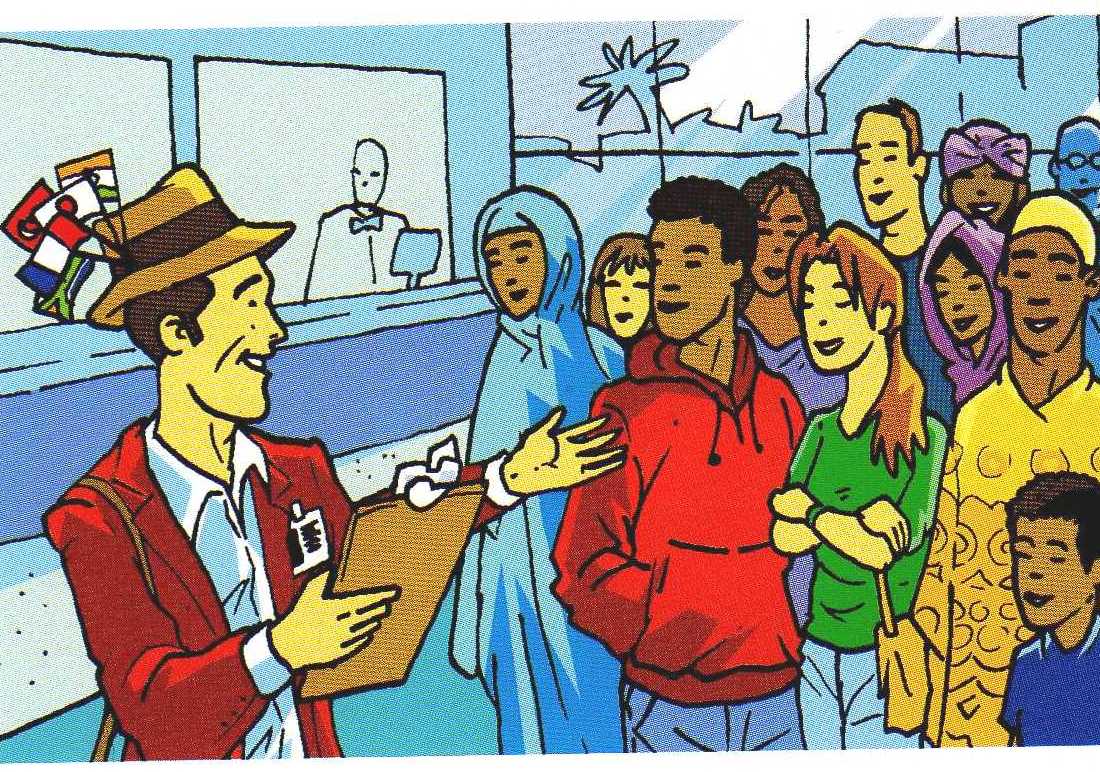
Working in tourism or hotel industry means meeting people from different countries. It also means sending people to different destination with different traditions and customs. It is important to respect and understand
these different traditions and customs.
-
How can you find out more about the traditions of visitors from other countries?
-
How can you help tourists to understand local traditions and cultures when they visit other destinations?
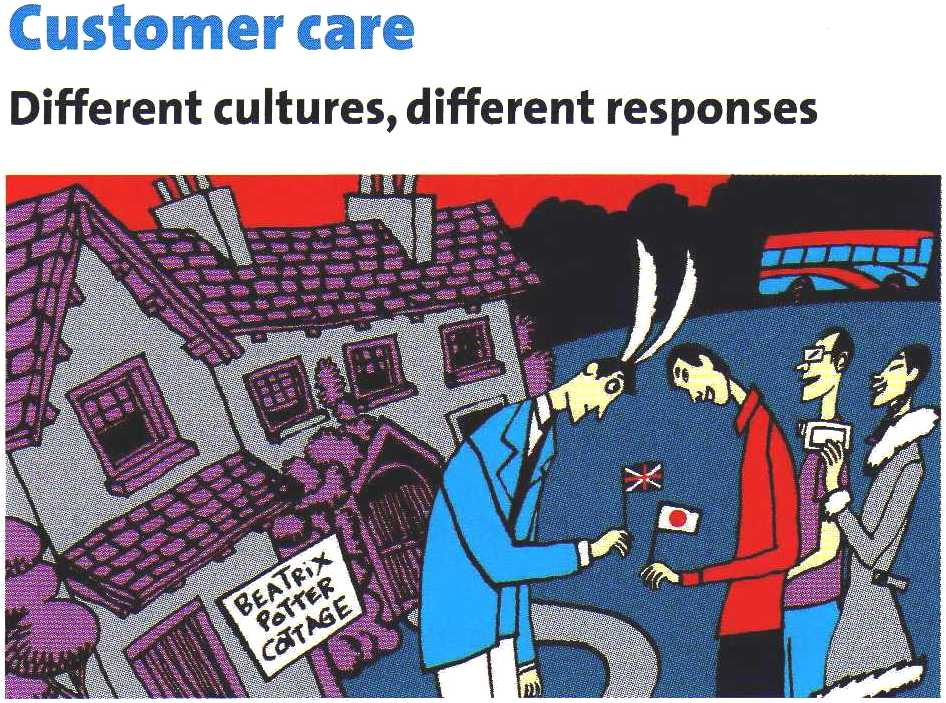
-
How can the people who work at tourist attractions adapt to meet the cultural differences of certain nationalities, for example, Japan or the Middle East?
-
Read the case study to find out what one tourist attraction has done.
Case study: Japanese victors to the home of Beatrix Potter in north-west England.
Beatrix Potter, who wrote children's books about characters such as Peter Rabbit and Jemima Puddleduck, is very popular in Japan, especially since the release of the film Miss Potter in 2007.Her home, Hill Top Cottage, is now owned by the National Trust and Japanese tourists make up a third of all visitors. The local tourist industry prepares tourist employees in a number of ways.
Japanese culture
Tourist industry response
Courtesy and politeness are very important in Japanese culture
Special courtesy training programmes, including teaching the correct pronunciation of yokoso, the Japanese word for "welcome".
Japanese people usually greet by bowing
Staff are being taught how to bow with the correct amount of formality.
Giving and receiving little gifts is very important in Japanese culture
The gift shop stocks items that Japanese like to buy, and packages each one in a separate National Trust bag so they can be given as individual gifts.
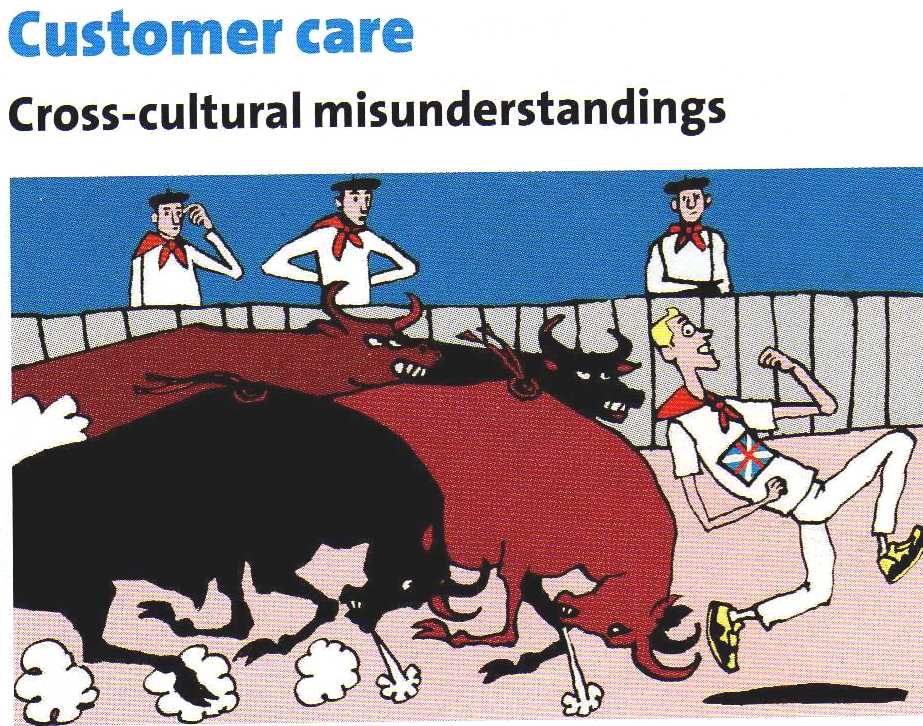
Some niches are very specialized and unusual, and sometimes they will not be understood by the host community. Cultural differences and misunderstanding like this can often occur when working in hospitality industry.
Read about one group of niche tourists whose hobby was not understood, and who found themselves in serious trouble.
-
What was the niche interest of the tourist?
-
What went wrong?
-
What could the tourist professionals (tour operator, tour guide, etc.) have done to avoid the problems?
-
What misunderstanding - cultural or otherwise - do you think could occur on some of the other specialist holidays we have looked at in this unit?
Plane - spotters cleared of spying.
Eleven British and two Dutch plane-spotters, who were given prison sentences for spying in Greece, have been allowed to go free.
The group were arrested one year ago as they took notes at an air base open day in Kalamata, Greece.
Paul Coppin, the tour operator who arranged the trip, was one of the arrested group. He said that it had been a misunderstanding and that it was obvious that they were not spies, but that they were just doing their hobby.
Squadron Leader Nektarios Samara, of the Greek Air Force, said their actions could be dangerous for the security of the country. He had no idea that plane - spotting was a hobby and that it was allowed in other countries.
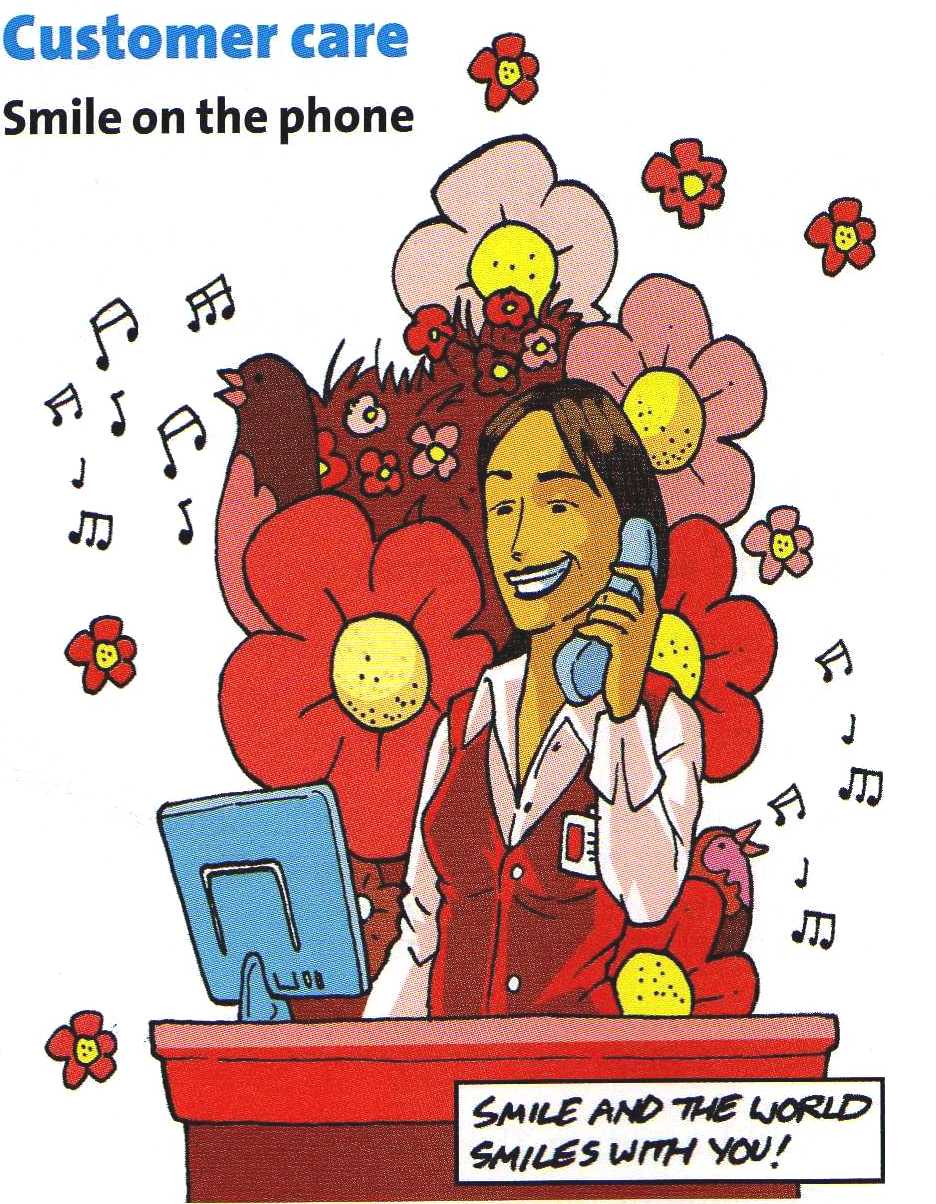
Taking routine phone calls can be boring, but often a
phone call is the first contact a guest has with a hotel,
and gives a first impression. So smile as you take the
booking. The caller will notice the smile in your voice
and respond accordingly.
Hotel Training Manual
Try this experiment. Work with a partner. Stand back
to back. Take turns to say one of the phrases a receptionist usually says. Smile when you say some of the sentences. Can your partner "hear the smile" in
your voice?
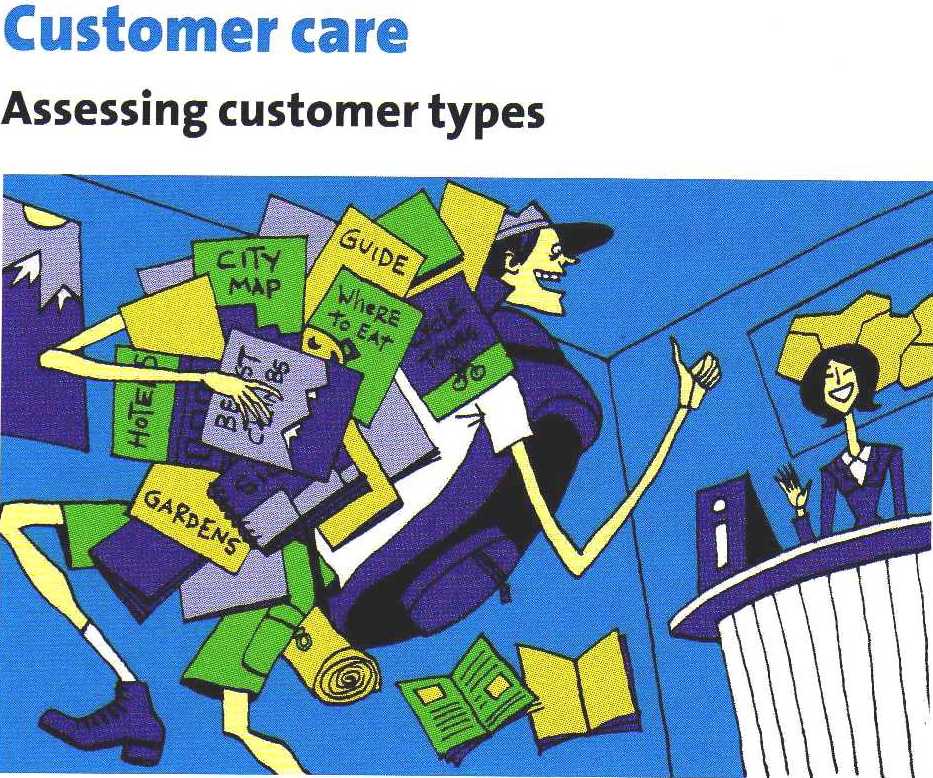
Customers come in all shapes and sizes. Working in a Tourist Information Centre, you will meet people with very different characteristics and ways of behaving.
Here are some customer types. Do you recognize any of the types from people you know or have dealt with?
-
The questioner: asks lots and lots of questions even though they don't really need to know
-
Straight to the point: wants a clear simple answer to their query, and nothing extra
-
Empty head: not sure what they want to know, but feel they ought to ask something
-
The shy one: wants help, but won't ask for it
-
The sponge: Fascinated by everything you have to say and absorbs all the information
How would you deal with these customer types? Would you treat them all the same?

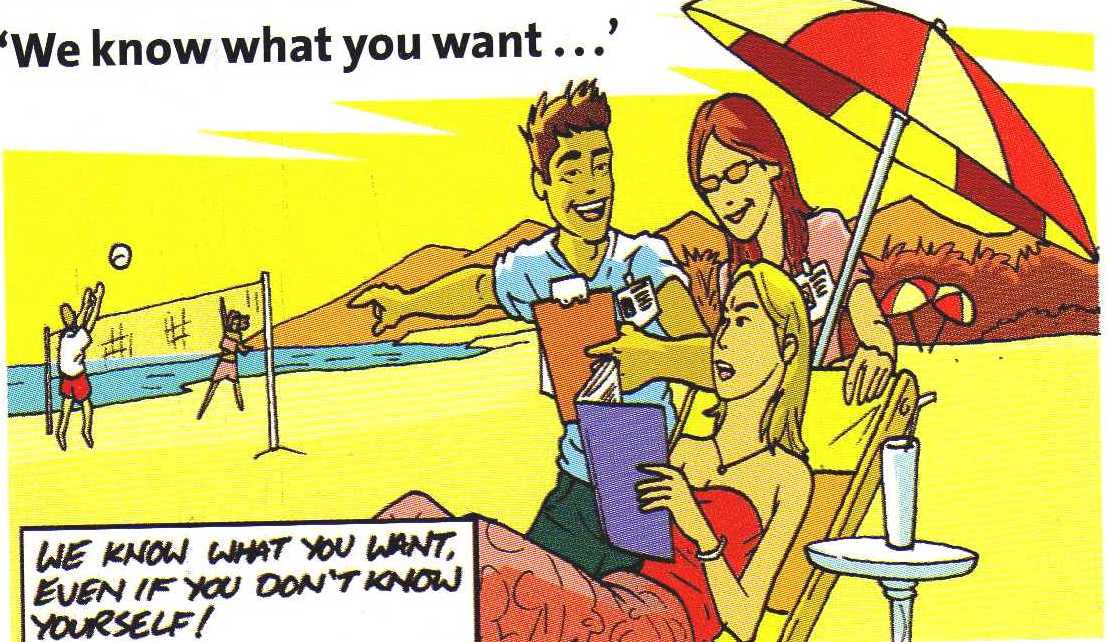
Staff working in tourism and hotel industry must be able to understand the different reasons why tourists have come on holiday. It is important to get to know your customers.
Find out why they've come on holiday, what they want to do, and then help them to achieve their dreams. Tourism Training Journal.
-
Do you agree that people working in hospitality industry should help tourists and visitors to "achieve their dreams"? Or should they leave them alone?
-
What questions could you ask to find out why a tourist has come on holiday and what they want to do?

In hospitality industry the most important thing is not just to meet expectations, but to exceed them.
Do you agree?
Hotels try to exceed expectations in many ways. How can we exceed expectations in the transport sector?
-
Think about the different transport types-air, sea/river, rail, and road.
-
Make up a presentation about the ways hotels exceed their customers' expectations.

Learn from your customers
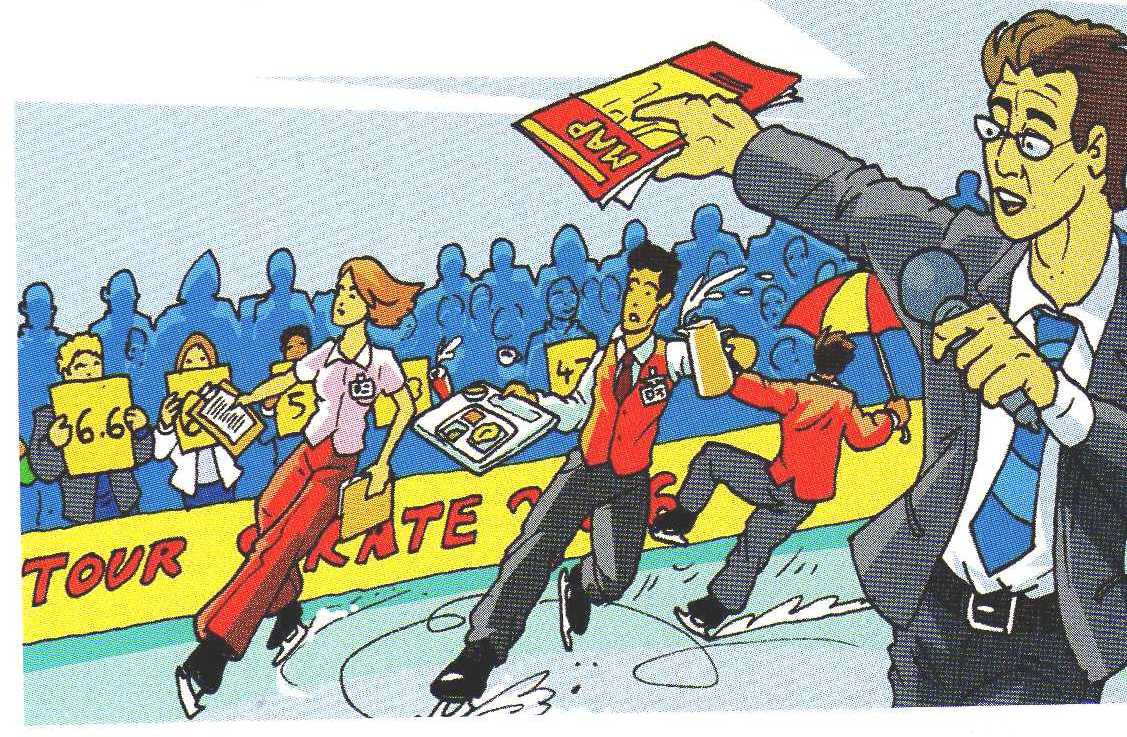
Ask for feedback from your customers. Use a questionnaire - keep it short and simple. Get customers to suggest how you could improve your services or even discover what you are particularly good at.
What areas would you want to find out about in a
feedback questionnaire
-
a hotel?
-
a travel agent?
-
an airline?
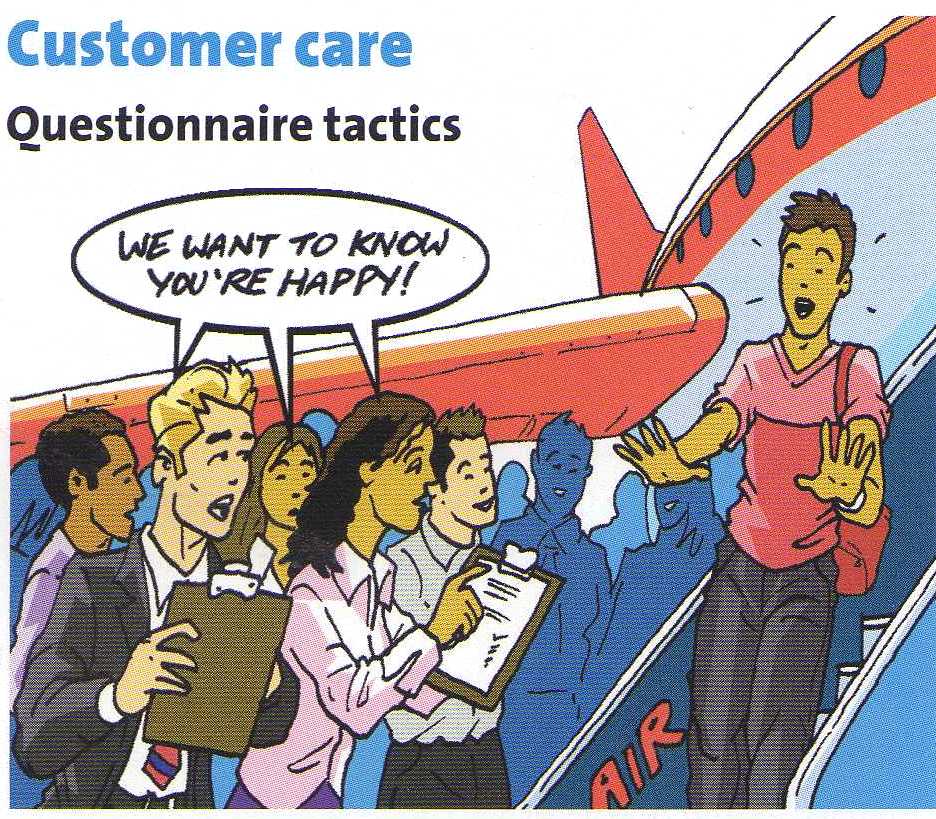
When you ask a traveler to answer a questionnaire,
remember to
-
say what the questionnaire is about
-
ask permission before you ask any questions
-
tell the person how long the interview will last.
It is not enough to ask polite questions. You have to
sound polite, too. Smile when you ask your questions.
Avoid looking down at your questions sheet all the time. Remember to look at the person you are interviewing.
-
In which of the pieces of advice would you say
This will only take five minutes.
Excuse me, I'm doing a survey about air travel.
Would you mind answering a few questions?
-
How should you finish a questionnaire? What should you say at the end?
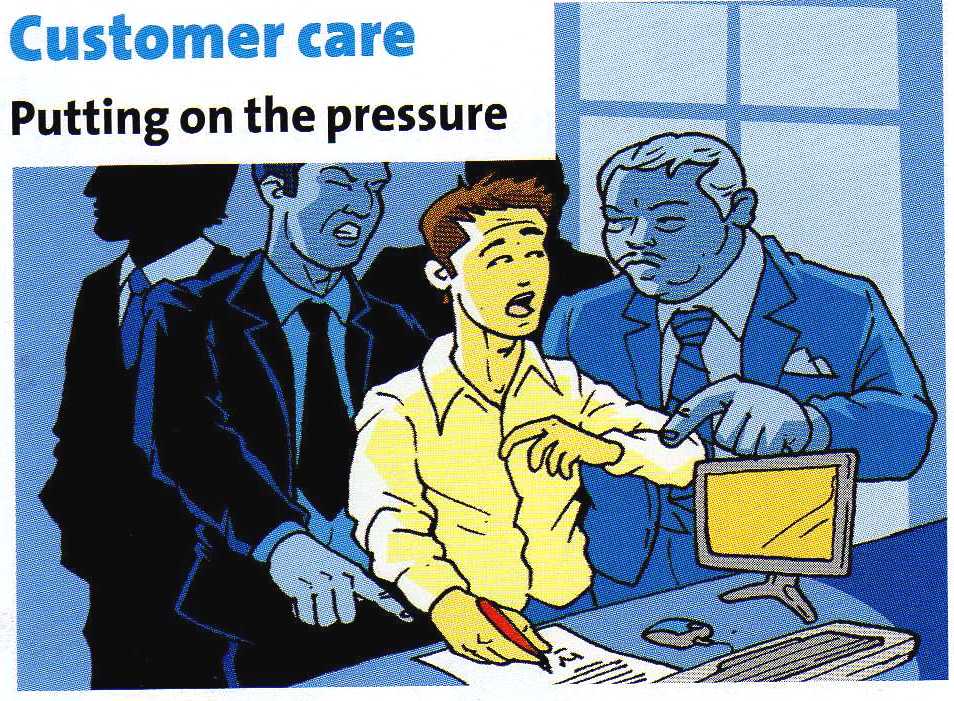
A
Don't pressure a customer to make a booking if you sense that they are not sure yet. Give them time. Let them go away and think about it. Remember that on average a satisfied customer will tell two friends or members of their family. A dissatisfied customer, in contrast, will tell at least nine people.
Customers sometimes need help making up their minds. Put a little pressure on them that the booking can only be held for a short time, and you need a decision soon, or they might lose the opportunity altogether. You're the professional, you know what's good for them- so push them a bit.
-
Which of the two statements do you agree with most?
-
What would you actually say to the customer in each situation?
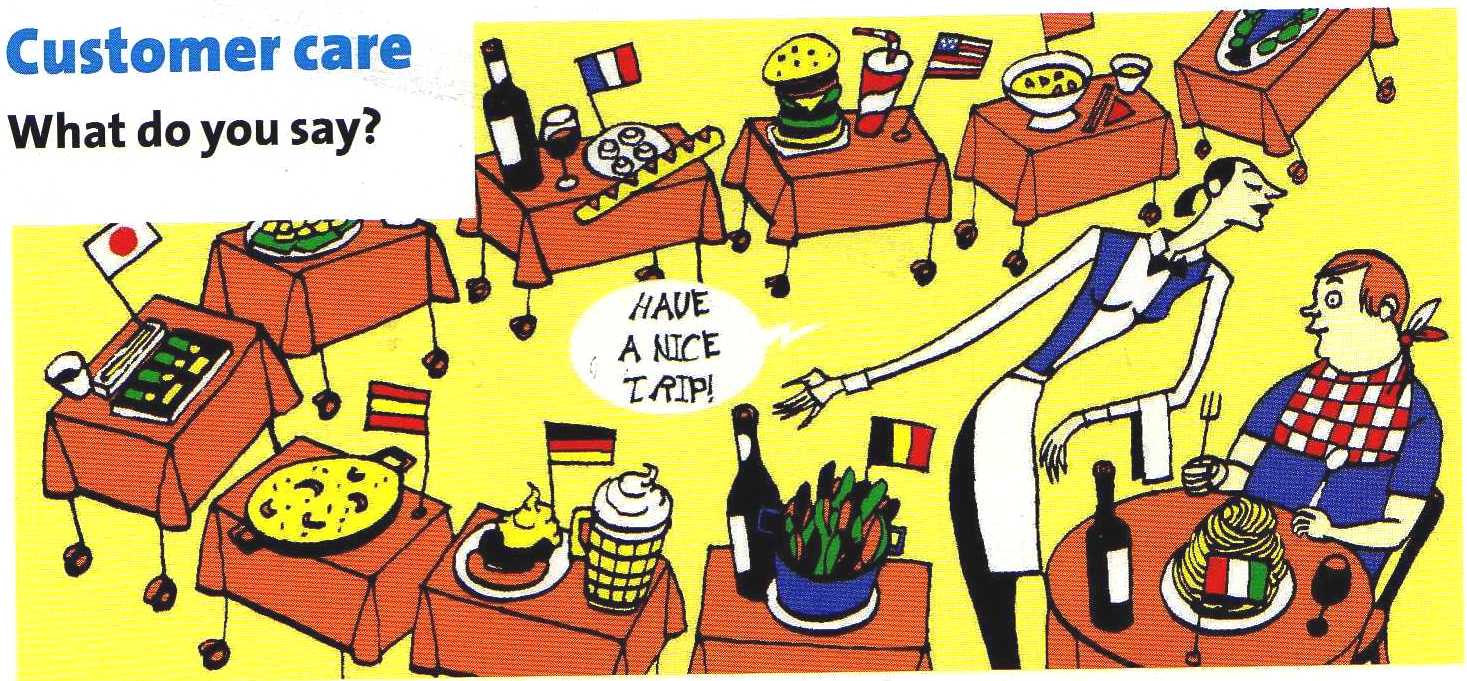
Most languages have common expressions which are said on certain occasions, e.g. in French, "bon appétit" to guests at a dinner table, or "bon voyage" to travellers before a trip. English often does not have simple equivalents to these expressions and sometimes borrows from other languages. So, before a meal the English will probably either say "bon appetite" or possibly "enjoy your meal" - or sometimes nothing at all.
In what situations are these other common expressions used?
-
"Safe journey"
-
"You're welcome"
-
"Do start"
-
"Cheers"
-
"Have a nice day"
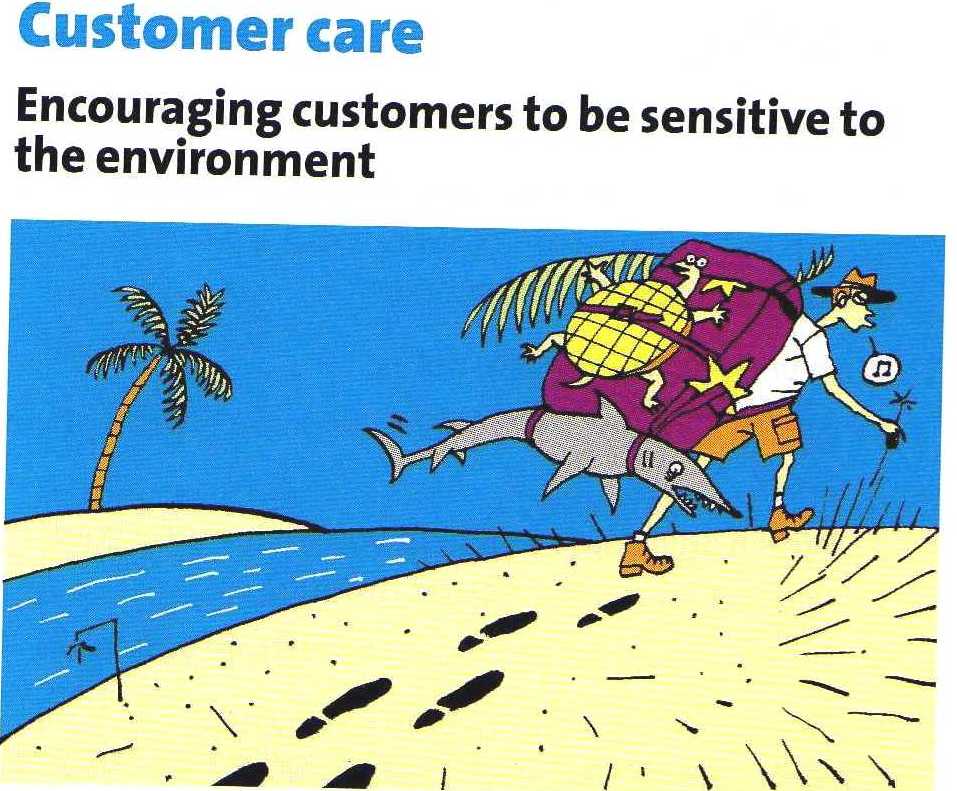
There is a piece of advice that responsible tourism organizations often give to travellers: "Take only photographs; leave only footprints".
1. What are they encouraging their customers not to leave, and not to take?
The Countryside Code encourages tourists to be responsible to the rural environment in the UK. The key points are:
-
Be safe, plan ahead, and follow any signs.
-
Leave gates and property as you find them.
-
Protect plants and animals and take your litter home.
-
Keep dogs under close control.
-
Consider other people.
2. Would you change anything for a countryside code for the rural environment in your country?
3. What points would you include for a code for the urban environment in your country?
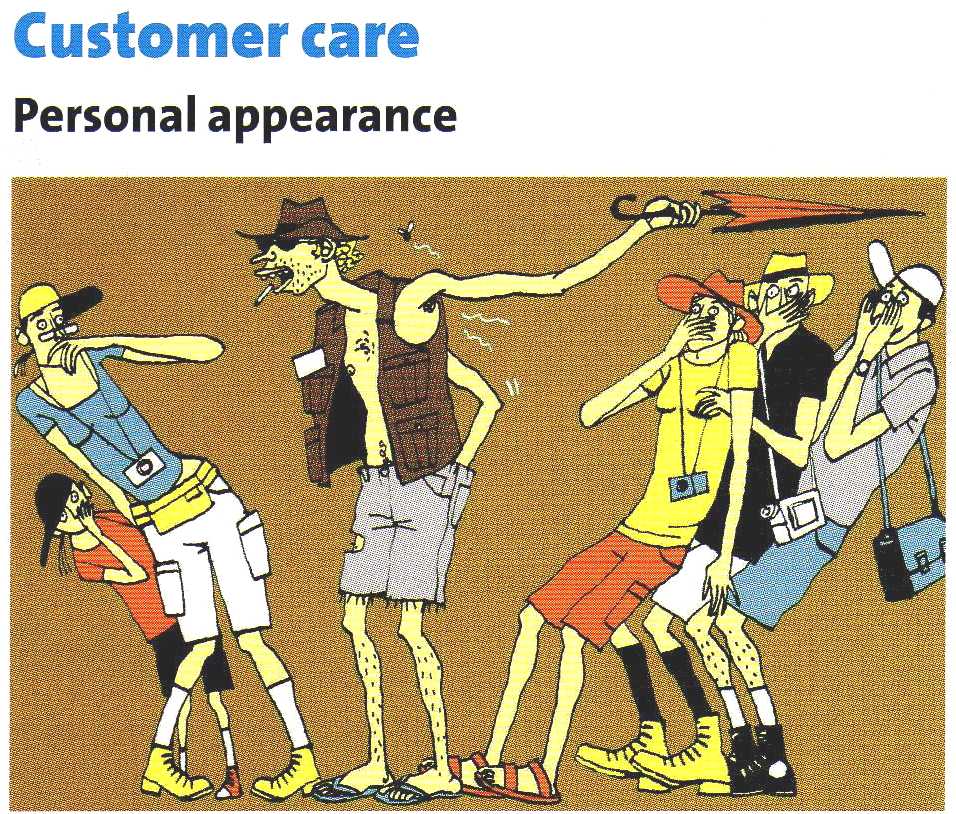
How important is the way you dress and your personal appearance in tourism? Read this extract from the "Standards of performance" for a national Tour Guide Association.
1. How would the standards be different for (a) a hot country , (b) a Muslim country , (c) your country ?
2. Change the standards so that they are appropriate for your country.
Dress appropriately for the occasion
-
city guiding - tailored trousers or skirt and a jacket for
women , tailored trousers for men with jacket and tie
-
country or island guiding - as for city, but jackets may
be replaced by smart sweater weatherproof clothing and footwear, depending on season
-
outdoor activities - appropriate protective clothing for
weather and conditions
-
be aware of personal hygiene and condition of clothing
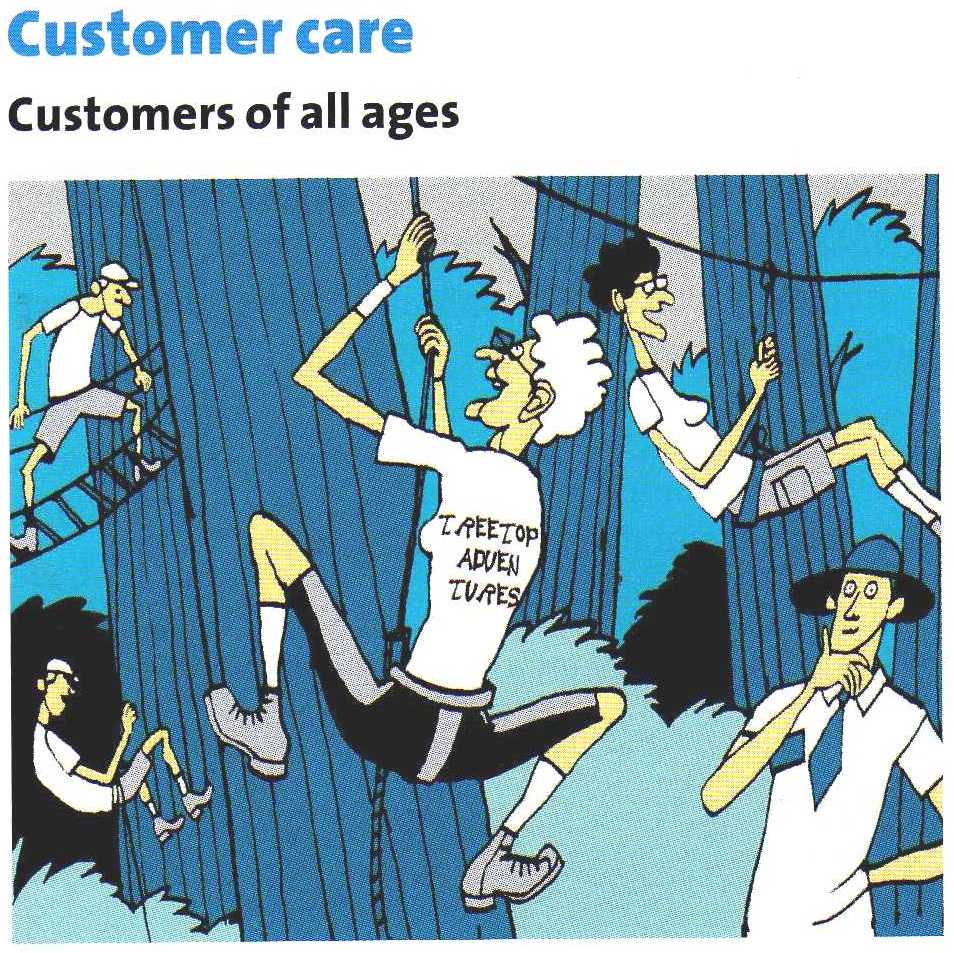
Tourist come in all different shapes and sizes - and ages. When it comes to entertainment, different ages may have different needs. What entertainment do you think these "seven ages of the tourist" will require?
You can choose from the items in the box if you want.
1. Young children (aged 0 to 12)
2. Teenagers
3. Young adults
4. Young couples
5. Families with young kids
6. Middle-aged people
7. Retired people
Trip to a water park or theme park
Candlelit dinner
Making things and playing games
Playing tennis
Trip to a museum or art gallery
Waterskiing or windsurfing
Bungee jumping or white-water rafting
Clubbing and dancing
Good food and drink
Shopping
But remember: don't assume your customer will want a certain type of entertainment just because they are a particular age. There may be teenagers in your care who like to visit museums and art galleries, and there may be retired people who want to go clubbing or visit a computer-game arcade!
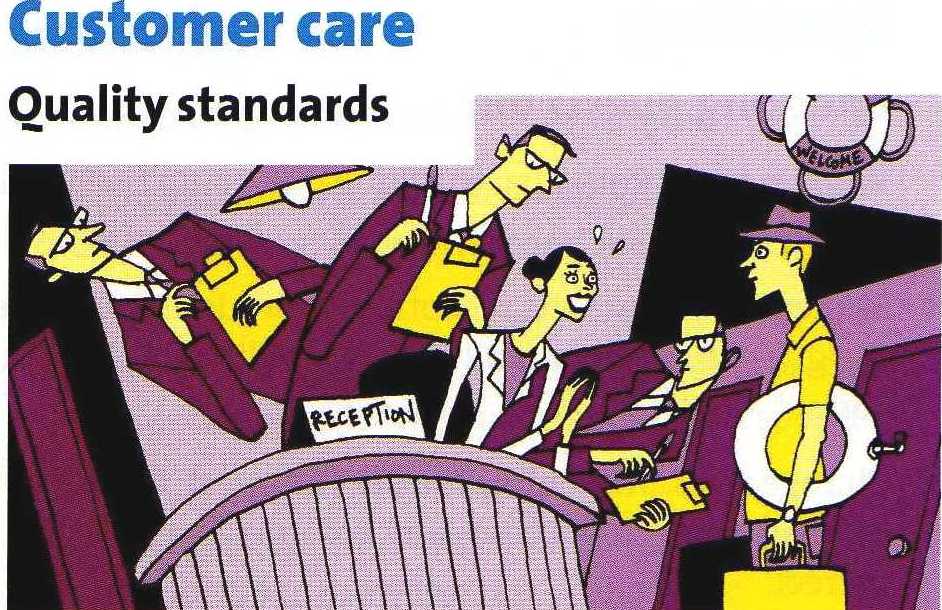
Many tourism organizations set "quality standards" or "Performance standards" for their employees. Quality standards for checking out customers at a hotel might include the following.
-
To smile and to be courteous to the guest at all times.
-
To use the guest's name when addressing him or her.
-
To process guest's closing account quickly and efficiently.
-
To check all items are included in the bill and to agree them with the guest.
-
To check the guest was happy with the service provided and, if not, to note any problems and pass them on to the management.
TEST
Complete the statements
-
Tourism and hotel business is about delighting the customer, not just ___.
-
Working in tourism or hotel industry means meeting people from different countries. It is important to respect and understand different ____.
-
Courtesy and politeness are very important in ____.
-
Giving and ____is very important in Japanese culture.
-
A phone call is _____a guest has with a hotel, and gives a first impression.
-
Staff working in tourism and hotel industry must be able to understand _____why tourists have come on holiday.
-
People working in hospitality industry should help tourists and visitors____.
-
In hospitality industry the most important thing is not just to meet expectations, but ____.
-
Remember to look at ____ you are interviewing.
-
Customers sometimes need help____.
-
So, before a meal the English will probably either say "bon appetite" or possibly ____- or sometimes nothing at all.
-
When it comes to entertainment, ____ may have different needs.
-
The way you dress and your ____ is very important in hospitality industry.
-
Cultural differences and ____ can occur when working in hospitality industry.
-
Many hotels set ____ for their employees.
serving a customer Japanese culture
receiving little gifts
traditions and customs the first contact
the different reasons
to "achieve their dreams" to exceed them
the person
making up their minds "enjoy your meal"
different ages personal appearance
misunderstandings "quality standards"
ИНФОРМАЦИОННЫЕ РЕСУРСЫ
-
Oxford English for Careers. Tourism (1). R.Walker and K.Harding. Oxford University Press, 2012.
-
Oxford English for Careers. Tourism (2). R.Walker and K.Harding. Oxford University Press, 2012.
-
travelclicks.com
-
hotelcluster.com - tips for hotel employees (советы работникам гостиничной индустрии).
-
ehow.com - how to improve customer service in hotels (как улучшить обслуживание клиентов в гостиницах).
29


